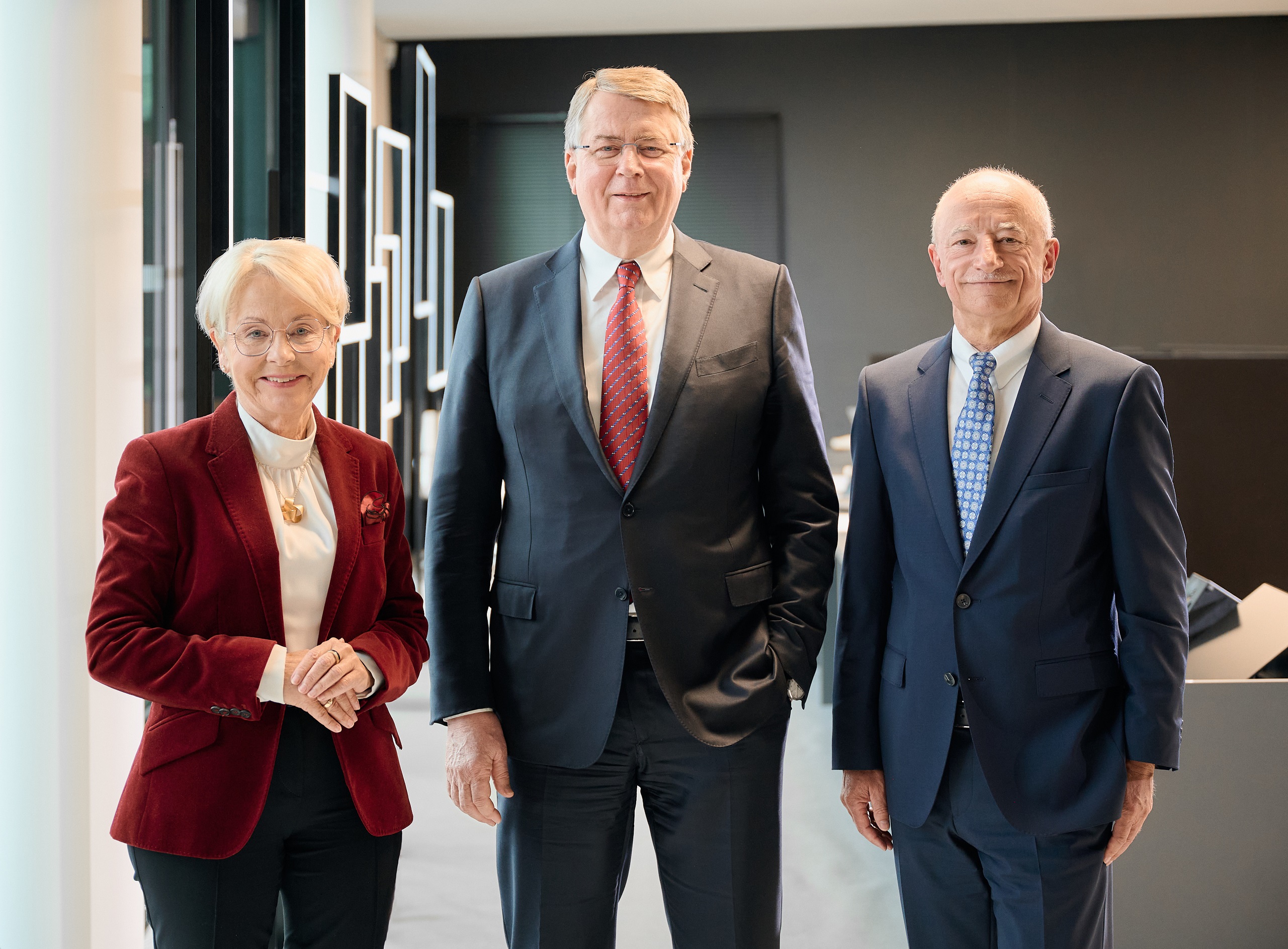The sustainability and resilience of the foundation model passes the stress test of continuing difficult framework conditions

Essen, 11 June 2024. The Board of Executives of the RAG-Stiftung published the figures for the past financial year and offered insights into developments during the current year at its annual press conference at the Zollverein UNESCO World Heritage Site in Essen today. Although the overall economic conditions remained difficult, the foundation was nonetheless able to report an annual profit for 2023 that exceeded the previous year’s figure. The foundation’s payments for perpetual obligations since the end of Germany’s hard coal mining operations totalled 1.3 billion euros at the end of 2023.
“1.3 billion euros for perpetual obligations since 2019 — that corresponds to about half of the volume of the Growth Opportunities Act passed by the German federal government. The foundation has made these payments reliably and almost imperceptibly over the past five years. And it has done so without drawing on its capital,” emphasized Bernd Tönjes, Chairman of the Board of Executives of the RAG-Stiftung, at today’s press conference. He explained that this cannot be taken for granted, in view of the ongoing crises and their far-reaching effects on the economic situation in Germany, which are affecting the foundation as well. Nonetheless, he said, the foundation has once again fulfilled all of its obligations. In 2023 the payments for perpetual obligations amounted to 266 million euros (prior year: 247 million euros). The increase of approximately 20 million euros was due in particular to increased energy costs.
In 2023 the RAG-Stiftung was also able to significantly increase its annual profit to 394 million euros (prior year: 347 million euros). Accordingly, 394 million euros could be added to the provision for perpetual obligations, which now totals 9.1 billion euros. “The sustainability and resilience of the foundation model has passed the stress test of continuing difficult framework conditions,” Tönjes emphasized. This includes the fact that the foundation has further reduced its dependence on individual positions in its investment portfolio. After the recent sale of approximately 5 percent of the share capital of Evonik Industries AG in mid-May of this year, Evonik now accounts for only one quarter of the foundation’s total assets. At the end of 2022 the foundation’s assets amounted to 16.8 billion euros. By the end of 2023 they had grown to 17.5 billion euros, and at the end of May 2024 they totalled approximately 18 billion euros.
Last year the foundation added 394 million euros to its diversified capital investments. In the course of the past year the RAG-Stiftung earned 959 million euros in revenue from its total capital investments, compared to expenses amounting to 565 million euros. This resulted in an annual profit of 394 million euros. “Our portfolio, which is diversified so as to include all asset categories and economic areas, can even cope with crises and tough setbacks effectively. In the past business year it has demonstrated that it can also handle the materialization of risks,” said Chief Financial Officer Dr Jürgen Rupp. “In spite of the many areas of turbulence in the world and in the capital markets, we are looking with confidence at the challenges that lie before us. The foundation is well positioned as an investor,” Rupp concluded.
In 2023 the RAG-Stiftung once again spent 32 million euros to support projects in the areas of education, science and culture. The support budget will remain at this stable high level during the current year. Within the framework of its support activities, the foundation is now additionally focusing on the promotion of democracy. “The promotion of democracy has been firmly established in our support guidelines for a long time. It is anchored in about 90 percent of our educational projects, and it already plays a role in many of our cultural and research projects. Nonetheless, during the year of European elections we are once again specially focusing on boosting awareness, in particular among young people, that democracy is a precious asset,” said Bärbel Bergerhoff-Wodopia, the member of the RAG-Stiftung Board of Executives who is responsible for human resources and the funding areas of education, science and culture.
The foundation also repeatedly provides assistance in acute emergencies. For example, by means of a special budget it has quickly made 500,000 euros available for flood relief in the Saarland region. “The foundation’s Board of Trustees and its Board of Executives got this assistance package off the ground a few days ago in order to provide rapid assistance to the people who are affected,” said Bergerhoff-Wodopia.
At the end of his address, Bernd Tönjes concluded, “The past few years have been a baptism of fire for the foundation. We have emerged from it strengthened and enriched by a number of crucial experiences. Today we know that our portfolio functions in every capital market environment. And this certainty will also help us to continue becoming even better in the future.”